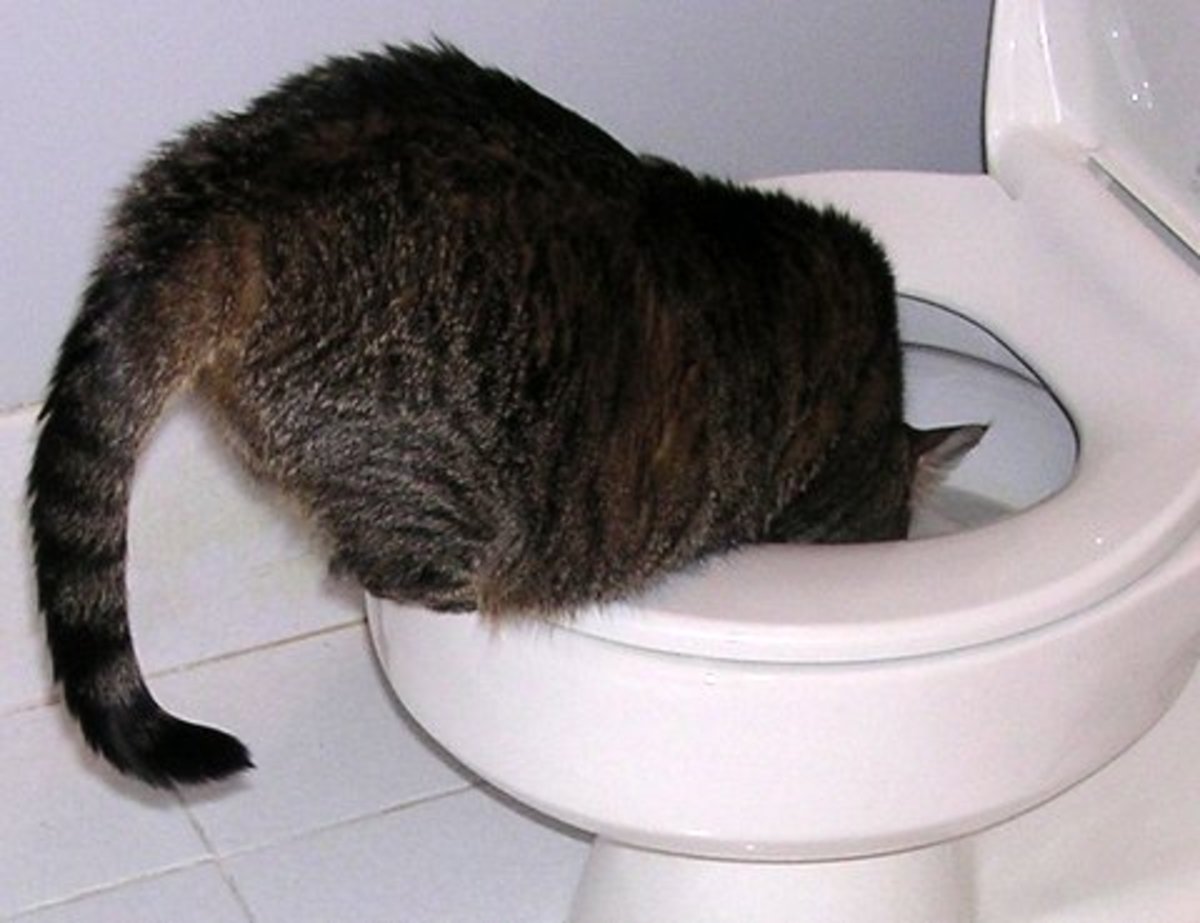Why You Should Never Flush Cat Poop Down Your Toilet - Important Information
Why You Should Never Flush Cat Poop Down Your Toilet - Important Information
Blog Article
We've discovered the article involving How to Dispose of Cat Poop and Litter Without Plastic Bags down the page on the web and accepted it made perfect sense to talk about it with you on this site.

Introduction
As pet cat owners, it's essential to bear in mind exactly how we get rid of our feline friends' waste. While it may appear hassle-free to flush pet cat poop down the toilet, this practice can have destructive consequences for both the setting and human health and wellness.
Alternatives to Flushing
The good news is, there are safer and much more accountable means to get rid of feline poop. Think about the adhering to alternatives:
1. Scoop and Dispose in Trash
The most common approach of taking care of cat poop is to scoop it into a naturally degradable bag and toss it in the trash. Be sure to utilize a specialized clutter inside story and take care of the waste promptly.
2. Usage Biodegradable Litter
Opt for eco-friendly cat litter made from materials such as corn or wheat. These litters are environmentally friendly and can be securely gotten rid of in the trash.
3. Bury in the Yard
If you have a yard, consider burying feline waste in a marked location far from veggie yards and water sources. Make sure to dig deep sufficient to stop contamination of groundwater.
4. Set Up a Pet Waste Disposal System
Buy an animal garbage disposal system specifically designed for cat waste. These systems make use of enzymes to break down the waste, lowering smell and environmental impact.
Wellness Risks
Along with ecological problems, flushing cat waste can also pose health risks to humans. Pet cat feces may include Toxoplasma gondii, a parasite that can create toxoplasmosis-- a potentially extreme illness, especially for pregnant women and individuals with weakened immune systems.
Ecological Impact
Flushing pet cat poop presents damaging pathogens and bloodsuckers right into the supply of water, posing a significant threat to aquatic ecological communities. These pollutants can adversely affect marine life and compromise water top quality.
Verdict
Responsible animal possession prolongs past supplying food and sanctuary-- it likewise involves proper waste monitoring. By refraining from purging cat poop down the toilet and choosing alternate disposal methods, we can lessen our ecological footprint and safeguard human health.
Why Can’t I Flush Cat Poop?
It Spreads a Parasite
Cats are frequently infected with a parasite called toxoplasma gondii. The parasite causes an infection called toxoplasmosis. It is usually harmless to cats. The parasite only uses cat poop as a host for its eggs. Otherwise, the cat’s immune system usually keeps the infection at low enough levels to maintain its own health. But it does not stop the develop of eggs. These eggs are tiny and surprisingly tough. They may survive for a year before they begin to grow. But that’s the problem.
Our wastewater system is not designed to deal with toxoplasmosis eggs. Instead, most eggs will flush from your toilet into sewers and wastewater management plants. After the sewage is treated for many other harmful things in it, it is typically released into local rivers, lakes, or oceans. Here, the toxoplasmosis eggs can find new hosts, including starfish, crabs, otters, and many other wildlife. For many, this is a significant risk to their health. Toxoplasmosis can also end up infecting water sources that are important for agriculture, which means our deer, pigs, and sheep can get infected too.
Is There Risk to Humans?
There can be a risk to human life from flushing cat poop down the toilet. If you do so, the parasites from your cat’s poop can end up in shellfish, game animals, or livestock. If this meat is then served raw or undercooked, the people who eat it can get sick.
In fact, according to the CDC, 40 million people in the United States are infected with toxoplasma gondii. They get it from exposure to infected seafood, or from some kind of cat poop contamination, like drinking from a stream that is contaminated or touching anything that has come into contact with cat poop. That includes just cleaning a cat litter box.
Most people who get infected with these parasites will not develop any symptoms. However, for pregnant women or for those with compromised immune systems, the parasite can cause severe health problems.
How to Handle Cat Poop
The best way to handle cat poop is actually to clean the box more often. The eggs that the parasite sheds will not become active until one to five days after the cat poops. That means that if you clean daily, you’re much less likely to come into direct contact with infectious eggs.
That said, always dispose of cat poop in the garbage and not down the toilet. Wash your hands before and after you clean the litter box, and bring the bag of poop right outside to your garbage bins.
https://trenchlesssolutionsusa.com/why-cant-i-flush-cat-poop/

Do you really like reading about Don’t flush cat feces down the toilet? Create feedback further down. We'd be pleased to find out your feelings about this post. We hope to see you back again later on. Do you know another person who is interested in the subject? Be sure promote it. Thank you for your time invested reading it.
Request Service Report this page